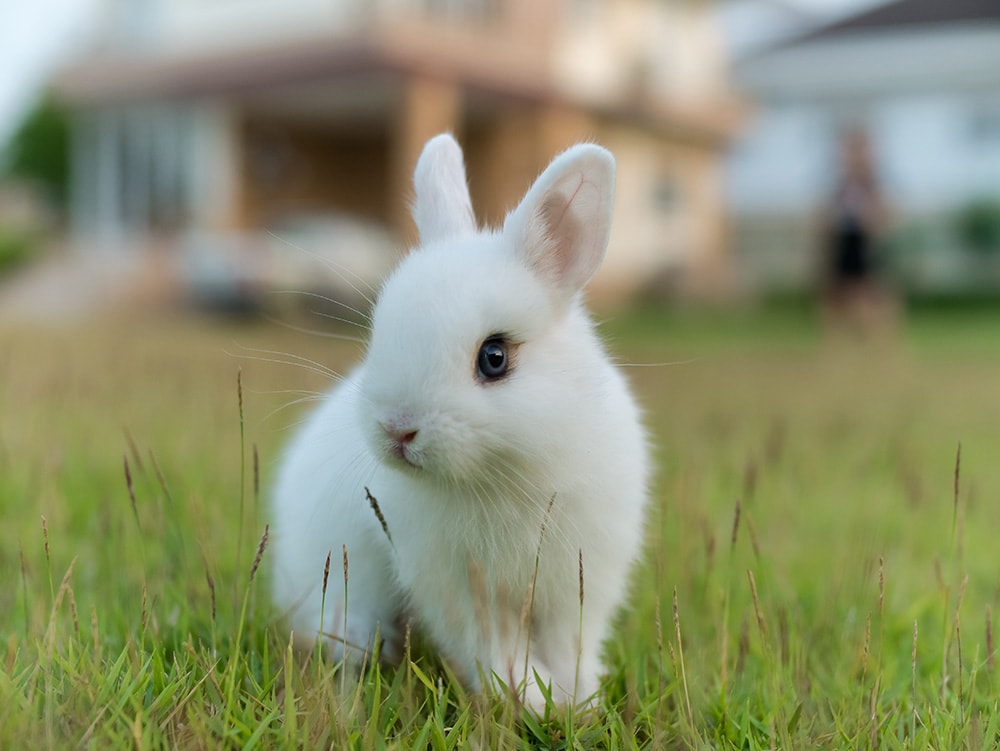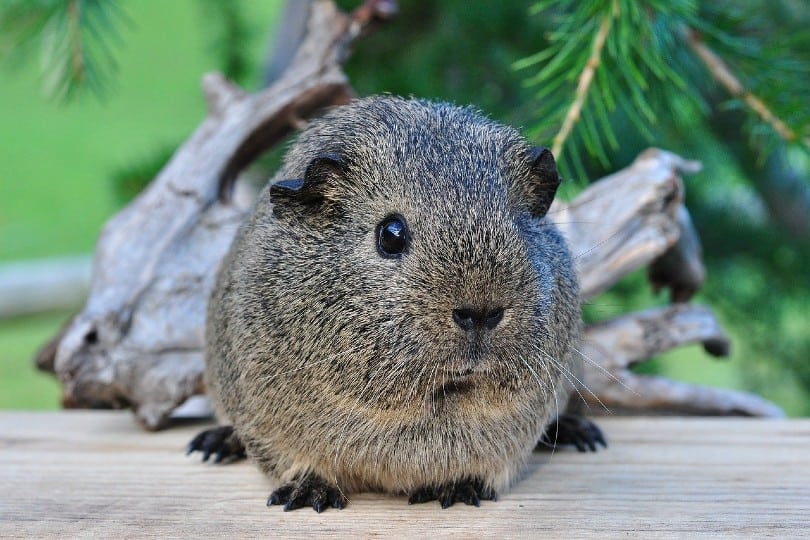
Guinea pigs are among the most popular pet rodents in the United States and are commonly purchased as starter pets for children that are ready to take on the responsibility of pet ownership. As far as pets go, guinea pigs are easy to find and inexpensive in terms of upfront costs.
PetSmart is undoubtedly one of the most popular pet stores in the nation. It serves as a one-stop shop for everything pet related and you can even purchase guinea pigs right in the store. We’ll talk a bit more about guinea pigs, how much you can expect to pay for one at PetSmart, and some additional costs to factor in.
Do Guinea Pigs Make Good Pets?
Guinea pigs have the potential to make excellent pets for those that have the time and ability to care for them properly. They are popular first pets for children because they are small, sociable, and gentle and they have longer life spans than other rodents like hamsters, gerbils, and rats.
Guinea pigs can be fragile, so they aren’t ideal pets for small children that lack motor skills or self-restraint. As with any pet, someone should always be supervising the interaction between a guinea pig and a small child. They do require daily care and regular cage cleaning, so you’ll need to provide the needed resources and have enough time to dedicate to them.
Socialization and consistent, proper handling are important from the get-go. You do not want your guinea pig to become shy and skittish. They can recognize their name, become familiar with your voice, and even learn basic commands and tricks.
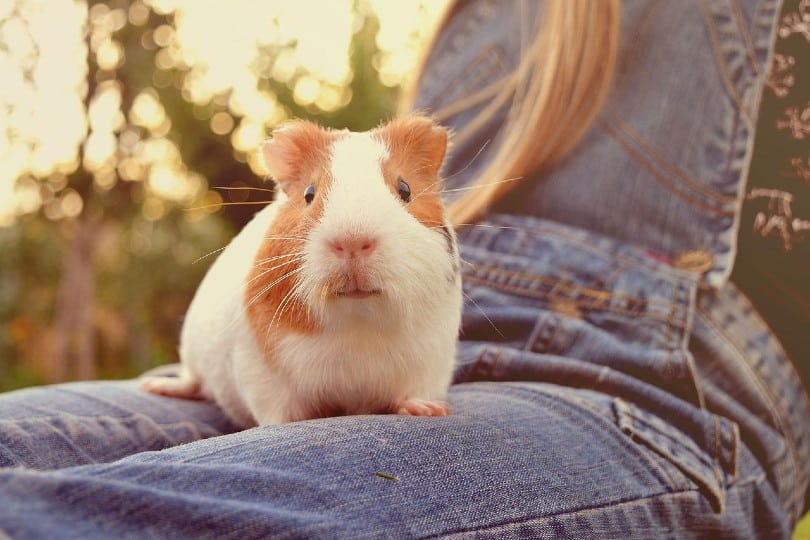
How Much Does a Guinea Pig Cost at PetSmart?
Guinea pigs are currently priced at $49.99 at PetSmart online. Prices may vary depending on certain factors like the animal’s age or gender, and your geographical location. You will want to call your local stores to ensure they have guinea pigs available to purchase and to confirm pricing.
Cost Determining Factors
Age
Guinea pigs have a lifespan of about 4 to 8 years when they are properly cared for. The price of a guinea pig may vary depending on the age of the guinea pig. The price for a younger guinea pig may be slightly higher than that of an older one.
Gender
Price may differ slightly between male and female guinea pigs. Males tend to live a little longer than females and tend to have more confidence and are sometimes easier to handle. Of course, this varies by individual, as each guinea pig has their own unique personality. We could not find where PetSmart’s prices differ between males and females.
Geographical Location
Online prices do not always reflect the prices you will pay at the store. The cost of living varies across the nation and prices may vary depending on your region or even between urban and rural areas.
Pet Rodent Costs at Petsmart
| Guinea Pig | $49.99 |
| Chinchilla | $189.99 |
| Hamster | $22.99 |
| Gerbil | $11.99 |
| Fancy Rat | $11.99 |
| Fancy Mouse | $7.79 |
Additional Costs to Anticipate
The cost of a new pet goes far beyond just the cost of the animal itself. Any pet you bring into your home will be a financial commitment for their lifetime. You will first have a list of necessary supplies that you will need to get started.
The upfront costs for a guinea pig include a cage, bedding, hides, a food bowl, a water bottle, food, and any extra treats and additional supplies you’d like to have on hand.
You will also need to get in contact with a veterinarian that serves smaller animals so that your guinea pig can get regular check-ups and have someone on hand in case any health concerns pop up.
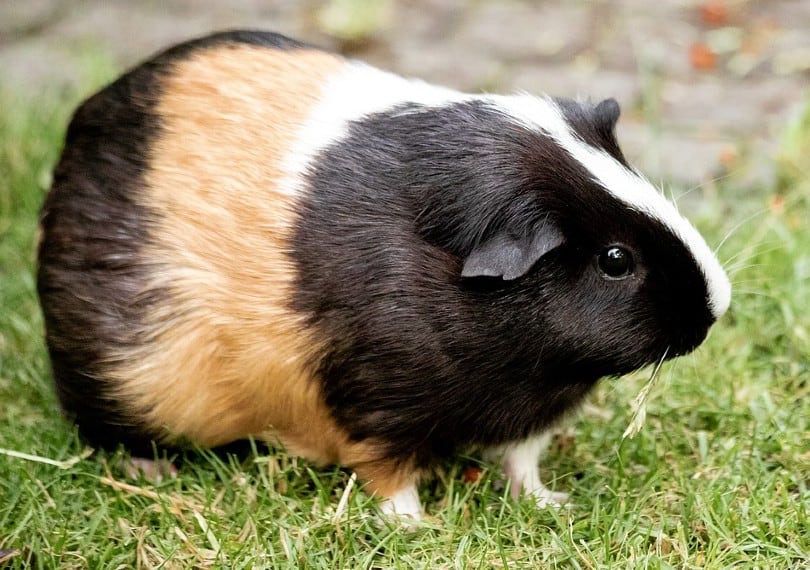
Price Range for Startup Supplies
| Cage | $50-$200 |
| Bedding | $10-$30 |
| Hide | $5-$25 |
| Water Bottle | $5-$20 |
| Food Bowl | $5-$10 |
| Food | $10-$20 |
| Hay | $5-$20 |
| Treats | $3-$10 |
Should I Get More Than One Guinea Pig?
Something that should be kept in mind for those wanting a guinea pig is that they should be purchased in pairs. Guinea pigs are highly social and do much better if they have a companion to share their life with. When factoring in costs, remember that you should ideally be purchasing two instead of one.
To prevent unwanted (and repeated) litters of guinea pigs, you will want to either purchase two females or two males. Males can be easy to house together as long as there are no females present in the home. You also have the option to sterilize your guinea pigs, which is something you will want to do if you ever plan to house the opposite sex together.
Guinea Pig Care and Husbandry
Proper care and husbandry are important for your guinea pig to live a full, happy, and healthy life. We’ll do a quick overview of some care and husbandry tips to help you decide if a guinea pig is right for you.
Housing
It is recommended that you provide a cage that offers 100 square inches per guinea pig. As we mentioned, it is best to purchase guinea pigs in pairs due to their social needs so you will need to keep space requirements in mind when purchasing more than one. The cage needs to be sturdy and secure to prevent escape. Place the cage in a quiet environment within the home away from the noise and heavy foot traffic. They do best in dry, cool environments away from direct sunlight.
Bedding
The bedding you choose should be non-toxic and dust-free. The most recommended bedding for guinea pigs is wood shavings, commercial pellets, processed ground corn cob, and shredded paper. Avoid sawdust and cedar shavings for guinea pigs due to potential health concerns.
Handling
Guinea pigs are typically easy to handle. You may notice some will be a bit skittish but with regular handling, they can easily warm up and may even approach you to be pet or picked up. Always use two hands when handling a guinea pig to minimize the risk of dropping them. Make sure to handle them regularly to ensure they become accustomed to human interaction, even if it is just for a few short minutes per day.
Diet
Guinea pigs are herbivores that require a diverse diet that provides them with the essential nutrients they need to thrive. One of the most important parts of their diet is grass hay. Not only is it full of necessary fiber and nutrients but it also helps keep their ever-growing teeth under control.
Since guinea pigs are unable to produce vitamin C, they need to be offered vitamin C-rich fruits and vegetables. They should be offered around ¼ to ½ cups of packed fruits and vegetables per day. They can also be offered commercial pellets that are made specifically for guinea pigs.
Clean, fresh water should be available at all times. Most owners choose to attach a water bottle to the cage so they can drink freely without the worry of any debris getting into the water. Remember to check with your veterinarian about any questions you have regarding your guinea pig’s diet.

Fun Facts About Guinea Pigs
Guinea Pigs Aren’t from Guinea
A common misconception is that Guinea pigs are from the African country of Guinea. They originate from South America, particularly the Andes region. It is believed the Inca may have domesticated them as much as 3000 years ago and Spanish explorers managed to bring them back to Europe where they became popular exotic pets. As for the name, there are many theories, but no one knows for sure why the name guinea pig came to be.
They Aren’t Related to Pigs
This may come as no surprise, but Guinea pigs are in no way related to true pigs. They are cavies, which are a family of rodents native to South America and found in a variety of habitats throughout the continent.
They Like to Chatter
Guinea pigs are a very vocal species that enjoy making a wide variety of sounds. Vocalizing is part of their natural behavior and is an important part of their life. While they do enjoy human companionship, they should be always kept with other Guinea pigs so they can communicate regularly and have the social interaction they thrive on.
They Are Active Up to 20 Hours Per Day
Guinea pigs are considered crepuscular, which means they are most active during dawn and dusk, but they don’t get nearly as much sleep as your average pet. Guinea pigs are active up to 20 hours per day only sleeping in short bursts of about 10 minutes or so. These sleeping habits are a natural way to avoid predation in the wild. They most often sleep with their eyes open so they can always remain alert.
Their Teeth Never Stop Growing
Guinea pigs have open root teeth that will continue to grow throughout their entire lives. This makes it easy for their front incisors to become overgrown, so it is important they are offered the proper feed, like grass hay and other chew to help prevent them from overgrowth and any associated discomfort or oral health issues.
They Mature Quickly
Guinea pigs can get around easily within just a few hours after birth. Unlike most other rodents they are born with all their hair, and teeth, and are fully functional in terms of vision and hearing. They reach full sexual maturity within the first 3 months, which is why it is very important to separate males from females as soon as they can leave their mom.
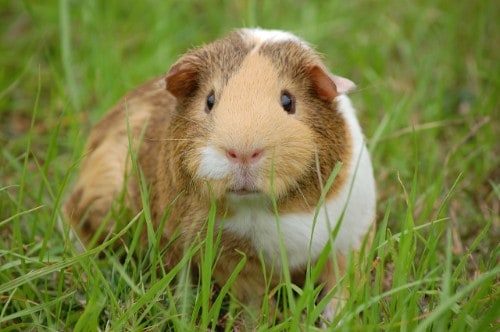
They Have up to 340 Degree of Vision
A natural adaptation for survival in the wild, a guinea pig has a 340-degree vision with the only blind spot directly behind its head. This helps them observe their surroundings to prevent them from becoming prey to any of their natural predators.
They Have 4 Toes on the Front and 3 on the Back
Interestingly, Guinea pigs only have three toes on their hind feet and four on the front, giving them a total of fourteen. This is a feature that cavies have so they can effectively burrow and create tunnels. Because of this, they aren’t very good at climbing.
There Are Many Different Types of Guinea Pigs
There are thirteen different breeds of Guinea pigs currently registered by the American Cavy Breeders Association, though there are others that are rarer and not currently registered. There is a wide variety of coat colors, patterns, and textures ranging from the hairless Guinea pig to the long-haired Peruvian breed.
Conclusion
Guinea pigs are currently priced at $49.99 at PetSmart online and the price does not change depending on geographical location within the United States. These prices could vary from in-store prices by location, so it’s important to reach out to your local PetSmart to not only confirm price but also availability. Guinea pigs have the potential to be great pets if you are prepared for the time and care commitments they require.
Featured Image Cortesy: Pixabay




